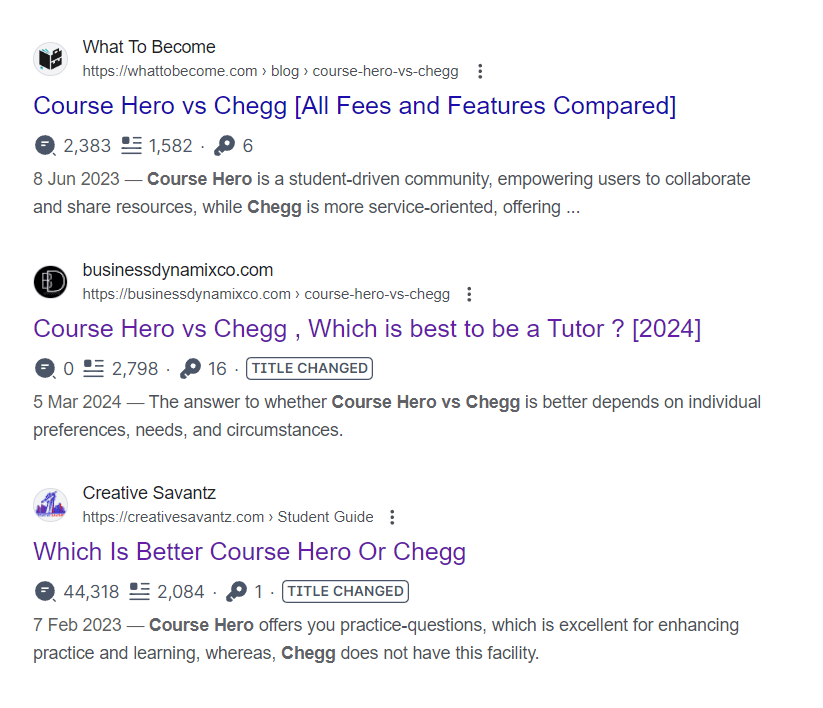An internet is an ocean of information, constantly producing with new content.
How do you navigate this vast sea and find the exact page you need?
The answer lies with search engines, and Google, it employs a complex ranking algorithm to determine which webpages deserve the top spots.
Google uses automated ranking systems that look at factors and signals about hundreds of billions of web pages and other content in our Search index to present the most relevant, useful results, all in a fraction of a second.
Understanding how this google ranking algorithm works is crucial for anyone who wants their content to be seen.
This article dive into the inner workings of Google’s ranking system, exploring the key factors that influence search results and providing you the valuable insights for content creators.
How does Google Ranking Algorithm work ?
Google’s search ranking algorithm is a masterpiece of engineering, a constantly evolving system that analyze billions of webpages to deliver the most relevant results for any given search query. It doesn’t rely on a single factor but rather considers a complex interplay of hundreds of “signals” to evaluate the quality and usefulness of a webpage. These signals can be broadly categorized into three main areas: content, on-page optimization, and off-page factors.
Content :
At the heart of Google’s algorithm lies content.
It all boils down to one crucial question:
how well does the content on a webpage match the user’s search intent?
Google strives to deliver results that are not just technically relevant but also truly informative and valuable to the searcher.
Here’s a breakdown of the key content-related factors:
- Relevance: This is the foundation of everything. Your content should directly address the user’s search query. Imagine searching for “ Course hero vs Chegg“

Google will prioritize webpages with detailed instructions, clear visuals, and safety precautions, not a blog post about the history of tires.
- Quality: Relevance goes hand-in-hand with quality. Google looks for content that is well-written, informative, and trustworthy. Signs of high-quality content include expertise of the author, accuracy of information, and a clear structure that makes it easy for users to find what they’re looking for.
Here I have written a blog post about How to Rank Higher on Google like Ahrefs and Semrush
Which describes all details about important google ranking factors , strategies of ahrefs and Semrush . This makes the content High Quality content and also helps to rank higher on google.
- Depth and Comprehensiveness: Google favors content that delves deeply into a topic, providing a thorough understanding. A simple article for richest people in the world might rank for a basic search, but a detailed information of top richest people success story , family background ,and their Net worth will likely hold a higher position.
- Freshness: While evergreen content is valuable, Google also recognizes the importance of fresh information. Regularly updating your content with new insights and keeping pace with current trends can give you an edge.
User Experience (UX):
Content quality is essential, but it’s not the whole picture.
Google prioritizes user experience (UX) as well.
Here’s how UX factors influence your search rankings:
- Mobile-friendliness: With the majority of searches now happening on mobile devices, having a website that is responsive and renders flawlessly on any screen size is crucial. To check your website’s Mobile User Engagement use Mobile Friendly Test
- Page Speed: Nobody enjoys waiting for a webpage to load. Google prioritizes fast-loading websites to ensure a smooth user experience. Check your Page speed
- Website Design and Functionality: A website’s design and functionality should be clear, intuitive, and user-friendly. Navigation should be easy, and essential information should be readily accessible.
On-Page Optimization:
Beyond the content itself, there are optimization techniques you can employ to improve your ranking. These on-page optimization techniques help search engines understand your content better:
- Keywords: While Google’s algorithm has become sophisticated and goes beyond strict keyword matching, including relevant keywords throughout your content can still be beneficial. However, keyword stuffing (unnatural repetition of keywords) is a practice to avoid.
- Title Tags and Meta Descriptions: Title tags and meta descriptions are like billboards for your webpage, providing a concise summary of the content. Optimizing these elements with relevant keywords and clear language can entice users to click on your result.
- Header Tags: Using header tags (H1, H2, etc.) to structure your content makes it easier for users to scan and understand. Header tags can also incorporate relevant keywords.
- Internal Linking: Linking to relevant pages within your website helps search engines understand the structure of your content and improves user navigation.
Off-Page Optimization:
One of the most significant off-page ranking factors is backlinks. These are essentially links from other websites that point back to your content. Backlinks act like a vote of confidence, telling Google that your content is valuable and trustworthy.
Backlink Quality: The quality of backlinks matters more than the quantity. Earning backlinks from high-authority websites in your niche carries more weight than links from random, low-quality sites.
Earning Backlinks Naturally: The best way to acquire backlinks is to create high-quality content that people naturally want to link to. This could be informative articles, insightful research, or compelling visuals.
Topical Authority:
Google recognizes websites that demonstrate expertise in a particular topic. This is known as topical authority. Here’s how to build topical authority:
- Content Consistency: Consistently creating high-quality content on a specific topic shows Google that you are a reliable source of information in that niche.
- Content Depth: Don’t just skim the surface. Delve deep into your chosen topic, exploring different aspects and providing valuable insights.
Understanding Context:
Google’s algorithm goes beyond the webpage itself and takes into account the context of the search. Here are some ways context influences search results:
- Location: Search results can be personalized based on the user’s location. For instance, searching for “best pizza” will likely return results for pizzerias near your current location.
- Search Intent: Google tries to understand the user’s intent behind a search query. Are they looking for information (informational query), trying to buy something (transactional query), or something else entirely? Understanding search intent allows Google to tailor results accordingly.
- Personalization: Based on your search history and browsing behavior, Google might personalize search results to some extent. This can be a double-edged sword, but generally, it aims to deliver results most relevant to your individual needs.
It’s important to remember that Google’s search ranking algorithm is constantly evolving. What works today might not work tomorrow. Google remains tight-lipped about the specifics of its algorithm, but they do emphasize their focus on delivering the most relevant and useful results to users. This means focusing on creating high-quality content that provides genuine value to your audience.
Beyond Ranking: The Importance of Great Content
While ranking high in search results is certainly desirable, it’s not the ultimate goal. The true purpose of your content is to engage your audience, establish yourself as an authority, and ultimately achieve your business objectives. Focusing on creating informative, engaging, and valuable content will not only help you rank well but also build trust and loyalty with your audience.
Putting it All Together: A Content Strategy for Success
Some key takeaways for crafting a content strategy that considers Google’s ranking algorithm:
- Know your audience: Understanding who you are trying to reach and their specific needs is crucial for creating content that resonates.
- Focus on quality: Prioritize creating high-quality, informative, and well-written content that provides genuine value to your audience.
- Optimize for search: While creating great content comes first, don’t neglect basic on-page optimization techniques.
- Build backlinks naturally: Focus on creating link-worthy content that people will want to share and link to organically.
- Stay up-to-date: Keep yourself informed about the latest SEO trends and best practices.
- Be patient: Building a strong online presence and achieving high search rankings takes time and consistent effort.
By following these principles and creating content that is both informative and engaging, you’ll be well on your way to achieving your content marketing goals.
Remember, Google’s algorithm is just one piece of the puzzle.
The real key to success lies in understanding your audience and delivering content that genuinely serves their needs.

Founder of Businessdynamixco.com and top3s.businessdynamixco.com.
Website Builder, Growth Hacker, always get Excited in writing Articles with my little Experience !






